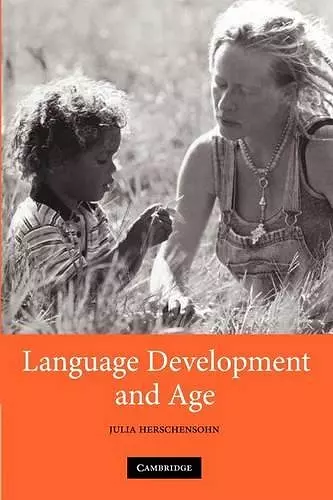Language Development and Age
Format:Paperback
Publisher:Cambridge University Press
Published:19th Jul '12
Currently unavailable, and unfortunately no date known when it will be back

This book presents an examination of whether early childhood is a critical period for language acquisition.
This book examines whether early childhood is a critical period for language acquisition after which individuals cannot learn language as native speakers. First language is largely susceptible to age constraints, showing major deficits past age twelve. Second-language acquisition also shows age effects, but with a range of individual differences.The anecdotal view of language acquisition is that children learn language with apparent ease, no instruction and in very little time, while adults find learning a new language to be cognitively challenging, labour intensive and time-consuming. In this book Herschensohn examines whether early childhood is a critical period for language acquisition after which individuals cannot learn a language as native speakers. She argues that a first language is largely susceptible to age constraints, showing major deficits past the age of twelve. Second-language acquisition also shows age effects, but with a range of individual differences. The competence of expert adult learners, the unequal achievements of child learners of second languages, and the lack of consistent evidence for a maturational cut-off, all cast doubt on a critical period for second-language acquisition.
'… will most certainly function as a rich resource for scholars interested in age effects in language acquisition for many years to come.' Journal of Linguistics
ISBN: 9781107404885
Dimensions: 229mm x 152mm x 16mm
Weight: 410g
304 pages